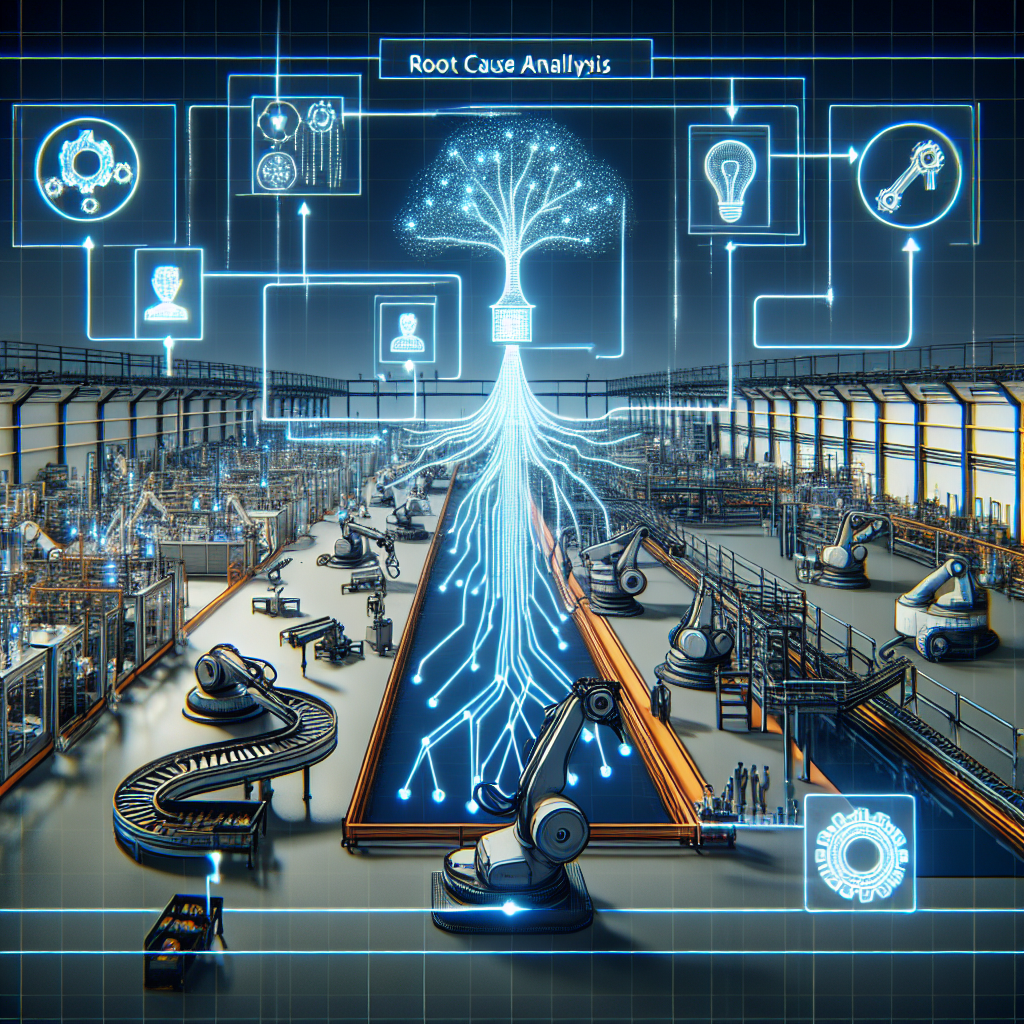In manufacturing, identifying and resolving the root causes of issues is crucial for maintaining efficiency, reducing downtime, and ensuring product quality. Traditionally, root cause analysis (RCA) has been a manual and time-consuming process, requiring experts to sift through data and make educated guesses about the underlying problems. However, with the advent of artificial intelligence (AI) technologies, RCA has been revolutionized, making it faster, more accurate, and more cost-effective.
AI-powered root cause analysis leverages machine learning algorithms to analyze vast amounts of data from various sources, including sensors, machines, and production systems. By detecting patterns and correlations in the data, AI can pinpoint the root causes of issues with a high degree of accuracy, allowing manufacturers to take targeted actions to address them.
One of the key benefits of AI-powered RCA is its ability to handle complex and dynamic manufacturing environments. Traditional RCA methods often struggle to cope with the sheer volume and complexity of data generated in modern manufacturing facilities. AI, on the other hand, can process and analyze this data in real-time, identifying patterns and trends that would be impossible for humans to detect.
Moreover, AI-powered RCA can also predict future issues before they occur, enabling manufacturers to take proactive measures to prevent downtime and maintain production efficiency. By analyzing historical data and identifying leading indicators of potential problems, AI can help manufacturers implement preventive maintenance strategies and optimize their production processes.
Another advantage of AI-powered RCA is its ability to learn and improve over time. As AI algorithms analyze more data and gain more insights into the manufacturing process, they can refine their models and become even more accurate in predicting and diagnosing issues. This continuous learning process allows manufacturers to stay ahead of potential problems and continuously improve their operations.
Furthermore, AI-powered RCA can also automate the root cause analysis process, freeing up valuable time and resources for manufacturers. By automatically identifying and diagnosing issues, AI can reduce the need for manual intervention and enable operators to focus on more strategic tasks that require human expertise.
Overall, AI-powered root cause analysis is transforming the way manufacturers identify and resolve issues in their production processes. By leveraging the power of machine learning and data analytics, manufacturers can improve efficiency, reduce downtime, and ensure product quality, ultimately leading to increased competitiveness and profitability.
FAQs:
Q: How does AI-powered root cause analysis differ from traditional RCA methods?
A: AI-powered RCA leverages machine learning algorithms to analyze vast amounts of data in real-time, identifying patterns and correlations that traditional methods may miss. This allows manufacturers to pinpoint the root causes of issues with a high degree of accuracy and take targeted actions to address them.
Q: What are the benefits of using AI-powered RCA in manufacturing?
A: AI-powered RCA can handle complex and dynamic manufacturing environments, predict future issues before they occur, learn and improve over time, and automate the root cause analysis process. These benefits enable manufacturers to improve efficiency, reduce downtime, and ensure product quality.
Q: How can manufacturers implement AI-powered RCA in their production processes?
A: Manufacturers can implement AI-powered RCA by integrating AI technologies into their existing data systems and production processes. This may involve deploying sensors and data collection systems, training AI algorithms on historical data, and continuously monitoring and optimizing the AI models.
Q: What are some examples of AI technologies used in RCA in manufacturing?
A: Some examples of AI technologies used in RCA in manufacturing include machine learning algorithms, predictive analytics, anomaly detection, and natural language processing. These technologies enable manufacturers to analyze data, identify patterns, and predict and diagnose issues in their production processes.
Q: How can manufacturers measure the success of AI-powered RCA in their operations?
A: Manufacturers can measure the success of AI-powered RCA by tracking key performance indicators such as downtime reduction, production efficiency improvement, quality assurance, and cost savings. By analyzing these metrics, manufacturers can assess the impact of AI on their operations and make informed decisions on further investments in AI technologies.

